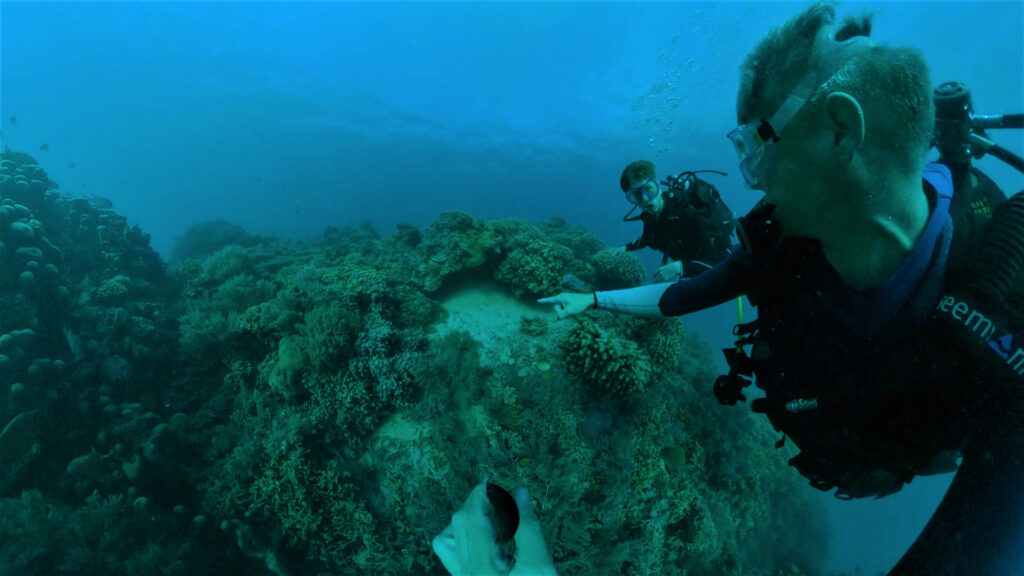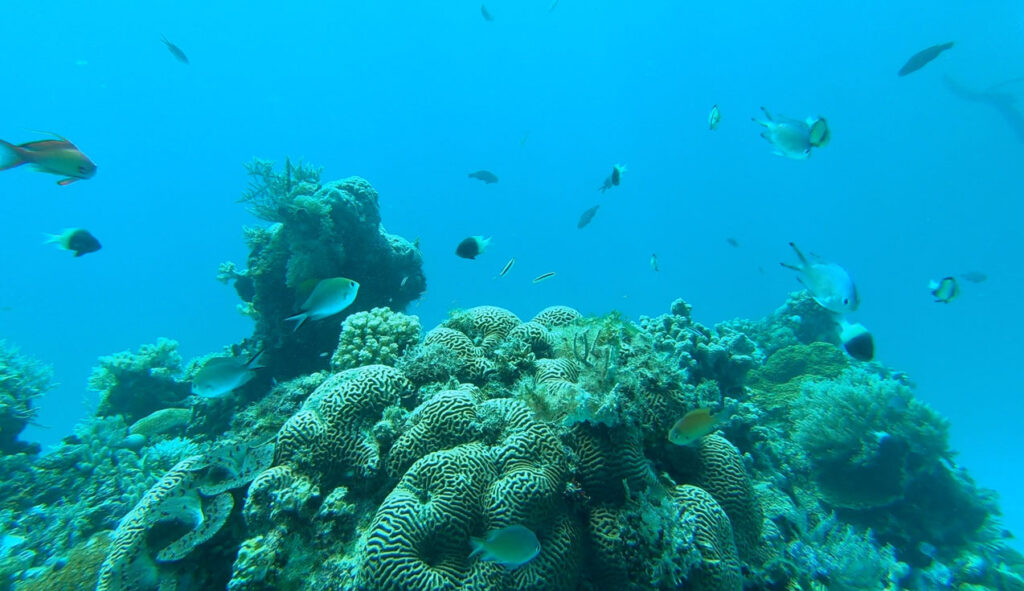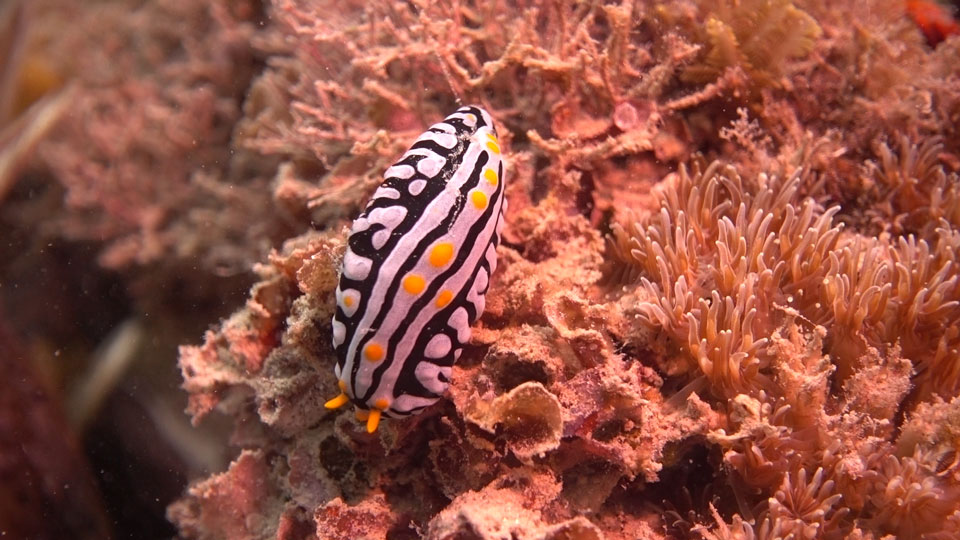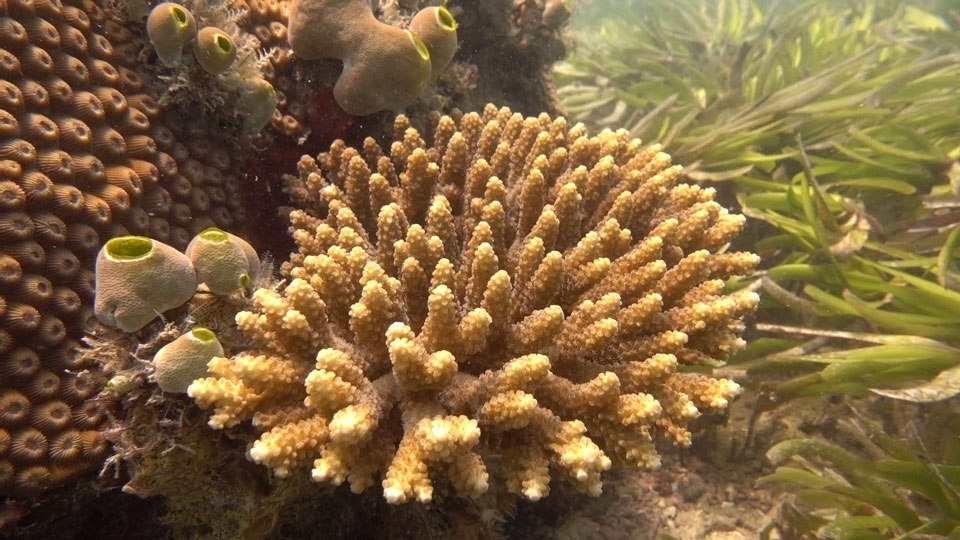"Dive with us!" continues from September. our educational program. We are waiting for applications from elementary school classes and schools.

"DIVE WITH US!"
An educational programme for primary school pupils.
Scuba diving in environmental, science or biology class?
With us it is possible!
Take a deep breath and dive into a world of corals, rays, turtles and sharks. Find out what threats these magnificent animals and what we can do to help them survive.


– Coral – animal or plant?
– Do you know what the white sand of the beach is made of?
– Why do parrotfish wear pyjamas at night?
– How can corals send messages to each other?
– How does an underwater wellness centre work? – brushing teeth, body care, manicure, and pedicure on the coral reef.
– We’ll also find out how much carbon dioxide seagrass fields and mangrove forests absorb and how
they contribute to preserving our planet.

Earth Day, World Water Day, World Oceans Day, World Environment Day, World Day for Our Earth - many, many links to a very topical issue.

Kids for the Oceans was founded to educate the next generation about the threats to ocean life. Our professional leader, Emil Karáth, is a biologist-ecologist. Although we have no direct geographical connection to the sea or the ocean, we believe it is important for young people to learn about the underwater world. With ¾ of our planet covered by oceans and seas, so we shouldn’t call our planet Earth, but Water. A quarter of all marine life is found on coral reefs. We will show students this amazing ecosystem.
We deeply believe that by empowering children and young people we can achieve our goal. That is why we are launching an education programme for primary school pupils.
These one-hour educational lectures are a valuable addition, as children learn little or nothing about these ecological processes at school. Underwater ecosystems play an important role in slowing climate change and reducing the amount of carbon dioxide in the atmosphere. We believe it is important that pupils have access to up-to-date information on sustainability and the environment. At the end of the 45-minute sessions, children will get a unique insight into the world of the oceans: at the end of the presentation, they will be able to dive with us into the depths of the seas using VR glasses. This innovative solution will allow many students who might not otherwise be able to do so to get up close and personal with marine life.


The educational lesson lasts 45 minutes, the first part of which consists of a lecture and the second part of which allows students to "dive with us" through VR glasses and see the underwater world.
VR glasses let you turn your head wherever you want. You can watch whatever you want. You can look wherever you want, there are no limits and there’s no “just forward”. You can enjoy a world of coral reefs that you can see 360 degrees.
A technical necessity::
- Power supply
- WIFI
- Projector
- Projection screen (or flat wall surface)
The cost of the program is HUF 2,500/student.
Emil Karáth, biologist, founder, president and professional leader of Kids for the Oceans:
Passionate about marine life, an experienced diver, a selected multiple world and European silver medal orienteering diver champion, a dedicated conservationist… and in between periods a freelance cameraman on land and underwater
He graduated as a biologist-ecologist from the University of Debrecen, writing his thesis on coral ecology.
He has worked with several international teams in various expeditions and environmental projects as the only Hungarian. He has been involved in several initiatives to protect marine ecosystems. He was the only Central and Eastern European participant in the world’s first coral reef research as part of a Swiss team in the Maldives in 1997. They measured the health of the coral reefs and sent the data to the University of Hong Kong, along with scientists from other parts of the world. The following year, almost 90 percent of the coral reefs in this area were destroyed by a natural phenomenon known as El Nino. He made a documentary film (the first of its kind) about this research, which won first prize in two film festivals.
In 2000, the Tropicarium was opened in Budapest. Perhaps this was the only workplace where you could work with marine biology at that time in Hungary. Emil was the biologist of the Tropicarium, so he participated in its creation. He had to transform a concrete hall into a tropical habitat: he arranged aquariums and terrariums, wrote and edited texts for animal information boards, caught alligators and brought them home from Sweden, and swam sharks from Florida under his arm to bring them out of their shock state after being transported. Here he dived with his pets, the sharks, every day. He became such a close friend with them that he almost gave his little finger to one of the hungry sand tiger sharks during one of the feeding shows. Thus, Emil became the survivor of the first shark attack in Hungary (fortunately, only a small scar remained on his finger after the incident).
Over the last twenty years he has been involved in several marine research and underwater filming projects. One of these was a 100-day project in the Grand Cayman Islands with an international team. The crew consisted of Australian, American, Scottish, and South African members. Their task was to produce 2 live, interactive broadcasts per day of the coral reef life around the island for the World Wide Web. The presenting biologists introduced viewers to the animals and plants around them underwater. Meanwhile, the biologists answered questions from viewers live.
These schools have already participated in our programme
- Ipolyi Arnold Alapiskola – 92 student
- Balassi Bálint Alapiskola Ipolynyék – 71 student
- Fegyvenreki Ferenc Közös Igazgatású Katolikus Iskola Ipolyság– 173 student
- Budapesti Fazekas Mihály Gyakorló Általános Iskola és Gimnázium – 6.a class – 26 student
- Szent-Györgyi Albert Általános Iskola és Gimnázium – 27 kids
- Magyar Tanítási Nyelvű Alapiskola Kürt – 30 student
- Budapesti Fazekas Mihály Gyakorló Általános Iskola és Gimnázium – 5. b class – 18 student
- Fegyvenreki Ferenc Közös Igazgatású Katolikus Iskola Ipolyság napközis tábor – 40 student
- Tarnapodi Nyári fesztivál – 120 adult and kids
- Helen Doron Székesfehérvár – 46 kids
- Algorithmics Székesfehérvár – 14 kids
- Helen Doron Székesfehérvár 2. nyári tábora – 25 kids
- Rákóczi Szövetség Vitorlás tábora – 25 young people
- Ajkai Molnár Gábor Műhely Alapítvány – 80 young people
- Bolygó, Budapest – 11 young and adult
- ÉFOÉSZ Veszprém Megyei Közhasznú Egyesület – 25 people with disabilities
- Szondy György Gimnázium Ipolyság – 65 student
- Dunaharaszti Kőrösi Csoma Sándor Általános Iskola – 205 student
- Budapest II.Kerületi Pitypang Utcai Általános Iskola – 26 student
- Alapiskola és Óvoda Nagyölved – 76 student
- Magyar Tanítási Nyelvű Alapiskola Nagysalló – 25 student
- Palotás Gábor Általános Iskola – 50 student
PLEASE CALL or to WRITE US!
For more information about the educational lectures, reach out to one of us:
